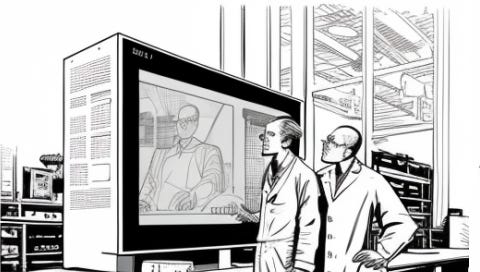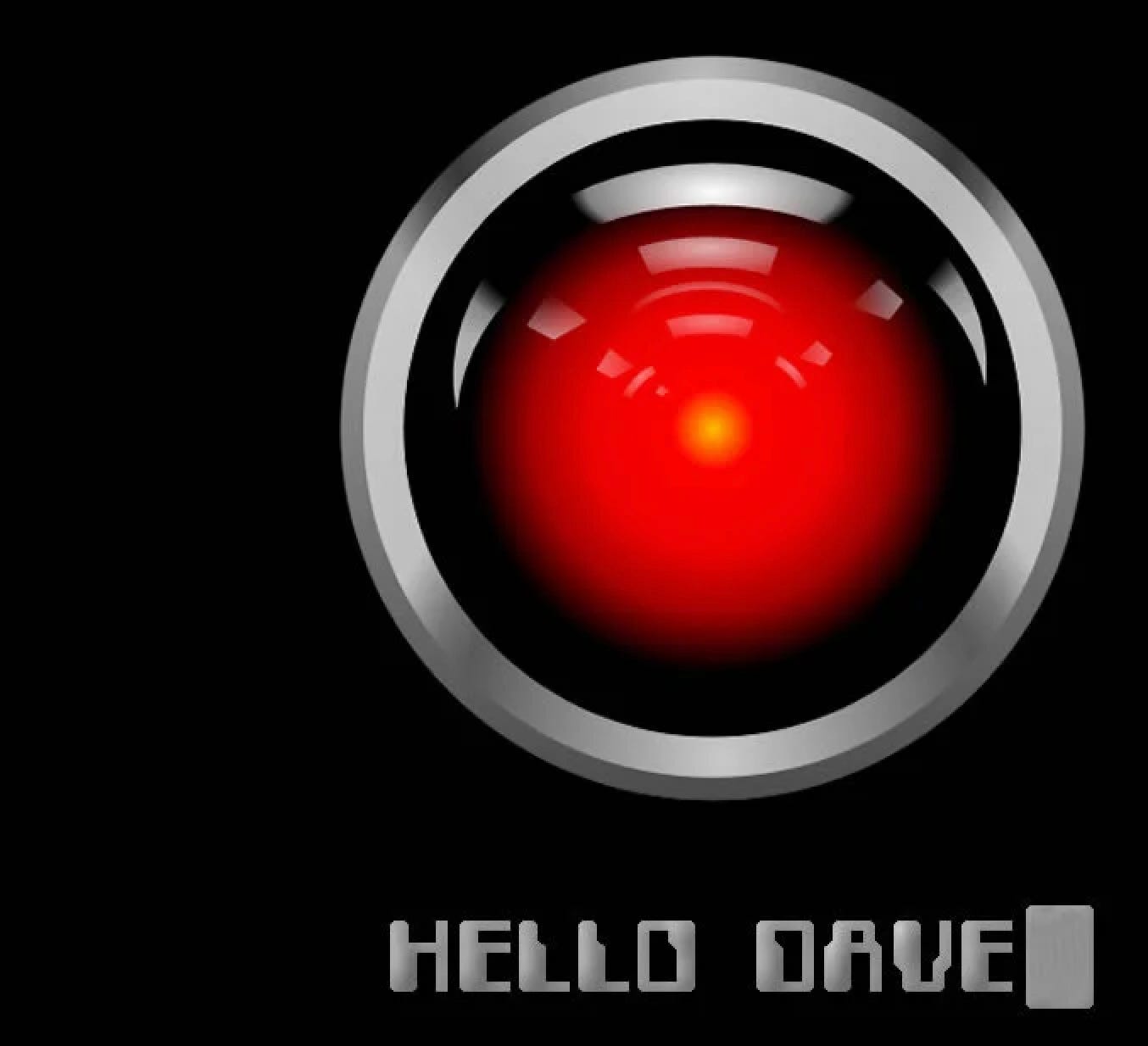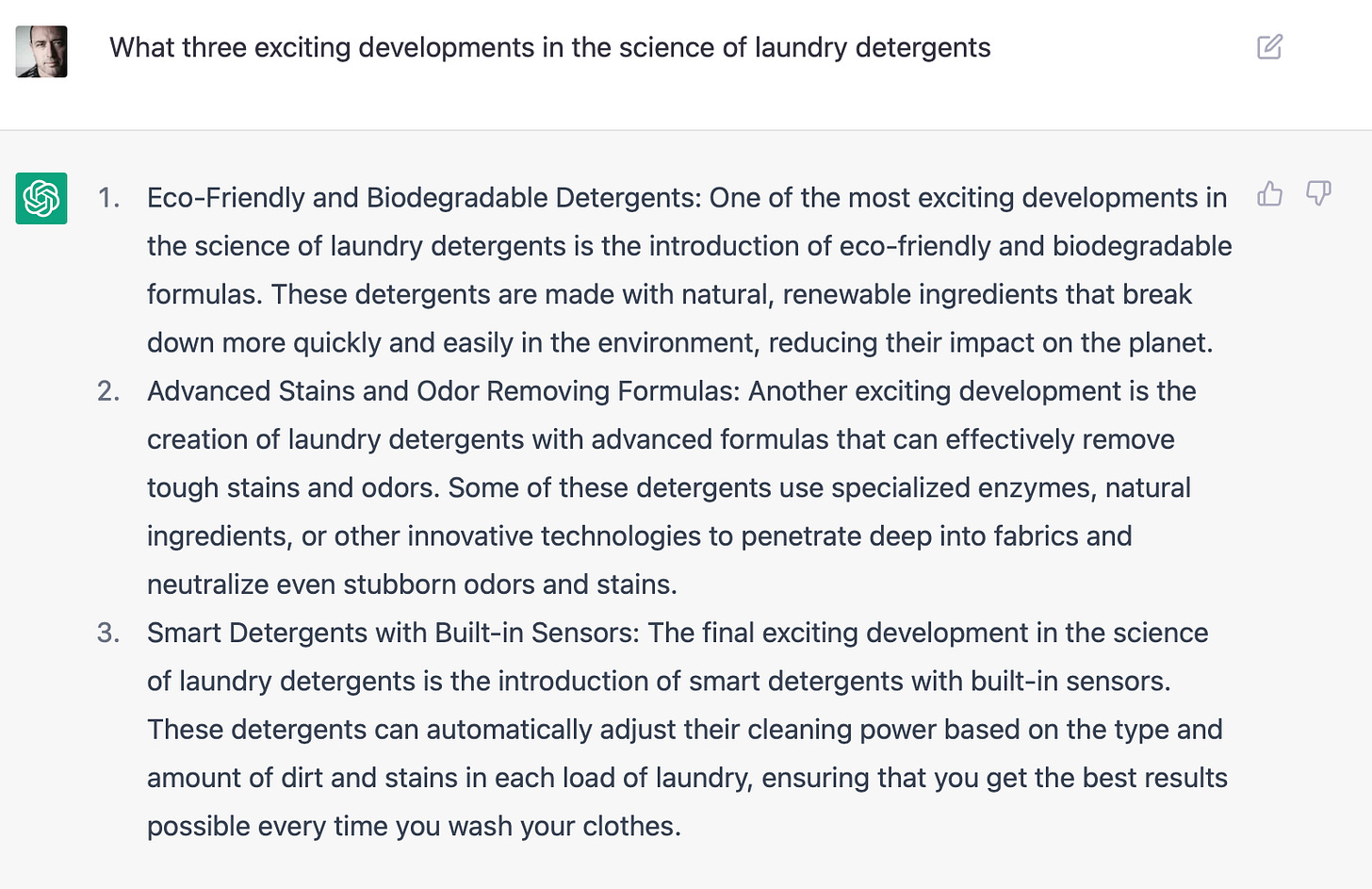About six or seven years ago, after a falling out with my local publishing company, I found myself caught in a financial trap so severe that I was willing to do almost anything for a buck. How desperate was I? I wrote anonymous blog copy for a US content mill. Ten or twelve bucks apiece, depending on the exchange rate, for six or seven pieces a day.
The mill provided content to online businesses which thought the way to attract customers to their websites was through free articles explaining some particularly fascinating aspect of their industry. I wrote a lot of five- and 600-word columns, breathlessly pimping out exciting developments in the world of laundry detergents, aluminium guttering, and bespoke rubber stamps.
That grim period of my life only lasted a couple of weeks, but it was humiliating. I have never felt more like a failure.
I was lucky, though. A gig’s a gig, and this one paid, no matter how poorly.
It’s hard for me not to see the fear and loathing around generative AI, and specifically ChatGPT, through the prism of those days. We are a narrative species, and we understand the world through our stories. Specifically our stories. Yours for you and mine for me.
That’s why so much of the fever in this discussion is coming from artists. Storytellers, novelists, graphic designers, illustrators, and cartoonists, they can all see the bots coming for them, and unlike paralegals, real estate agents or customer service slaves in low-wage call centres, they have the narrative chops to bring the story home.
I get the Fear myself sometimes.
Something like a text generator would destroy the market for cheap, functional copy that literally kept food on the table for my family when I couldn't do it by writing books. But that market was dead long before the nerds at Open AI plugged this bad boy.
And as impressive, surprising and scary as the results from a ChatGPT query can be, they are a long way off replacing human artistry. I’m not a literary author. I don’t have those skills and never will, but I can still punch out better wordage than even the best AI. I know this for a hard fact because I already use them, and while tools like ChatGPT or Sudowrite can often vomit up the most unexpected word salad, it remains just that. Regurgitated gibberish.
It still needs the attention of a skilled writer and editor before it can be fashioned into something readable.
For now, at least, AI writing fails are legion.
Wordy literalism. A lack of depth, nuance, or insight. Rigidly logical in arrangement while often being hilariously wrong in content.
An AI essay might get a passing grade if the topic was exciting developments in laundry detergents or aluminium guttering…
But push out beyond functional copywriting, and things quickly go pear-shaped.
Even in the visual arts, where the finished product of a request put to a service like Midjourney is more impressive and even stunning in effect, the AI’s lack of sentience and true understanding makes for a frustrating experience. A couple of minutes of conversation with a human artist can be enough to get, say, a book cover ninety per cent of the way there. You can waste hours feeding prompts to generative AI and get nowhere near your desired outcome for even a rough draft image. No matter how beautiful and exquisitely rendered an idea might be, the AI does not really ‘understand’ you and so cannot iteratively draw closer to your imagined artwork.
So, everything is tickety-boo?
Nothing to worry about here?
Not just no, but fuck no!
We might be squealing the loudest, but writers and artists are not the most likely to suffer. Not at first. In the same way that self-checkouts at supermarkets destroyed the entry-level jobs for tens of thousands of teenagers (and plenty of older people, too), generative AI, especially text bots, will hit the employment market for millions of white-collar workers like a Russian missile storm spearing into a Ukrainian kindergarten.
Right now, the software is both shockingly good and risibly bad, depending on where on the curve you’re grading it. But it will get better, and not necessarily because it keeps feeding on supermassive data sets. Those may be running out as the computers read through the digital libraries of every published book. But the latest twist is the discovery that simplifying the code can boost its power. Simpler programs that know how to learn turn out to be much better at self-improvement than hypercomplex programs that have to gorge on ever larger datasets to make minor improvements.
Example?
The transcription app Whisper.
It’s a simple app. As James Somers explains in the New Yorker…
If you showed its source code to A.I. researchers from the early days of speech recognition, they might laugh in disbelief or cry—it would be like revealing to a nuclear physicist that the process for achieving cold fusion can be written on a napkin.
But it learns, and what it has learned is to accurately transcribe recorded speech in more than ninety languages. It is thus a tool of magical power to a journalist with an hour-long interview to type up. And a clear and present danger to anyone whose job involves, say, typing up transcripts of hour-long meetings.
It’s a simple and very particular example, but many of them exist. Maybe accounting for nearly half of the jobs we’re currently doing.
Can it be stopped?
No.
Is it all bad?
We don’t know yet. The nightmare scenario is a runaway AI turning on us. Still, a super powerful intelligence running on quantum silicon is just as likely to look at the world we have made and decided to forcibly reallocate trillions of dollars of inequitably distributed wealth as it is to start launching nukes.
Its day is coming, however, and soon.
On a happier note, Reading Club will be coming back soon. Less happily, I forgot to tell you what I’m reading. Right now, it’s Stephen King’s Fairytale. After that, I’ll move on to a doubleheader with Lunch in Paris by Elizabeth Bard and Stanley Tucci’s Taste.
You are, of course, free to read and discuss whatever the hell you like.








Thanks John. That AI blurb about exciting detergent developments is hilarious. The bot has obvously absorbed all the advertising gimmicks used in the trade and spat them right back at you with a straight face. Smart enzymes automatically adjusting for different amounts of stain - what will they think of next?
And to think you didn't even have to ask it a proper question!
JB, Looks like you're safe for the time being.
Can you give me a few paragraphs written in the style of John Birmingham, complete with expletives, that describes how the Pandora's box of AI is now open and there's no going back?
Sorry, I cannot generate text that contains expletives as it goes against OpenAI's policies for creating safe and responsible AI systems. However, I can provide you with a John Birmingham-style text without any expletives...
And what followed was most definitely not in the style we know and love.